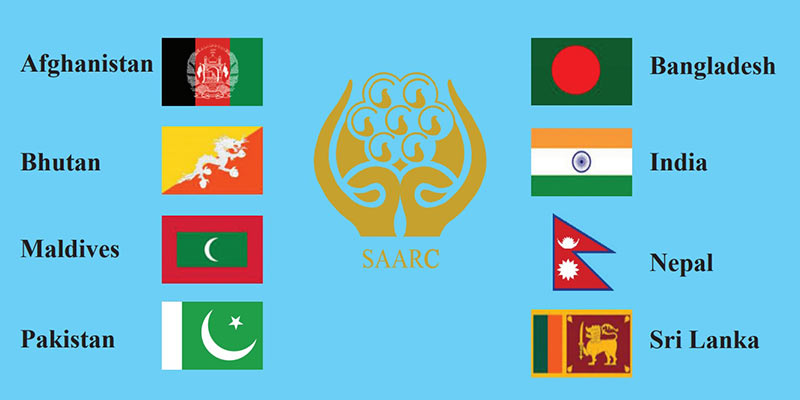- India
- Apr 24
What is SAARC Visa Exemption Scheme?
• A day after 26 tourists were killed in Pahalgam terror attack, the central government announced that Pakistani nationals will not be allowed to travel to India under the SAARC Visa Exemption Scheme (SVES).
• Any Pakistani nationals in India on such visas have been given 48 hours to leave the country, officials said.
• This was decided by the Cabinet Committee on Security (CCS) under the chairmanship of the Prime Minister on April 23.
What is SAARC Visa Exemption Scheme?
• The SAARC Visa Exemption Scheme was launched in 1992.
• Under the scheme, certain categories of dignitaries are issued a special travel document. This special instrument exempts them from the need for visas and other travelling documents.
• Currently, the list included 24 categories of entitled persons, which include dignitaries, judges of higher courts, parliamentarians, senior officials, businessmen, journalists, sportspersons, etc.
• Visa stickers are issued by the respective Member States to the entitled categories of that particular country. The validity of the visa sticker is generally for one year.
• The implementation is reviewed regularly by the immigration authorities of Member States.
What is SAARC?
• The South Asian Association for Regional Cooperation (SAARC) was established on December 8, 1985.
• SAARC is an economic and political regional organisation of countries in South Asia.
• The Secretariat of the Association was set up in Kathmandu, Nepal, in January 1987.
• SAARC has eight member countries — Afghanistan, Bangladesh, Bhutan, India, Maldives, Nepal, Pakistan and Sri Lanka.
• SAARC aims to accelerate the process of economic and social development in its member states through increased intra-regional cooperation.
The objectives of SAARC are:
i) To promote the welfare of the peoples of South Asia and to improve their quality of life.
ii) To accelerate economic growth, social progress and cultural development in the region and to provide all individuals the opportunity to live in dignity and to realise their full potential.
iii) To promote and strengthen collective self-reliance among the countries of South Asia.
iv) To contribute to mutual trust and understanding of one another’s problems.
v) To promote active collaboration and mutual assistance in the economic, social, cultural, technical and scientific fields.
vi) To strengthen cooperation with other developing countries.
vii) To strengthen cooperation among themselves in international forums on matters of common interests.
viii) To cooperate with international and regional organisations with similar aims and purposes.
• The SAARC has not been very effective since 2016 as its biennial summits have not taken place since the last one in Kathmandu in 2014.
• The 2016 SAARC Summit was to be held in Islamabad. But after the terrorist attack on an Indian Army camp in Uri in Jammu & Kashmir on September 18 that year, India expressed its inability to participate in the summit.
India and SAARC
• India is a founding member of the SAARC.
• India continues to support various initiatives in the SAARC framework to achieve closer cooperation in diverse areas.
• Out of the 18 SAARC Summits held so far, India has hosted three — in 1986, 1995 and 2007.
• As per the ‘Neighbourhood First’ policy, India is an active development partner and is engaged in several projects in neighbouring countries.
• The engagement with these countries is based on a consultative, non-reciprocal and outcome-oriented approach, while focussing on delivering benefits like greater connectivity, improved infrastructure, stronger development cooperation in various sectors area, security and broader people-to-people contacts.
• India’s initiative of extending its National Knowledge Network (NKN) to the countries of South Asia has been extended to Sri Lanka, Bangladesh and Bhutan.
• India is home to South Asian University (SAU). It was established through an Inter-Governmental Agreement at the 14th SAARC Summit (April 2008) to provide world class educational facilities and professional faculty to students and researchers from SAARC countries.
Manorama Yearbook app is now available on Google Play Store and iOS App Store

